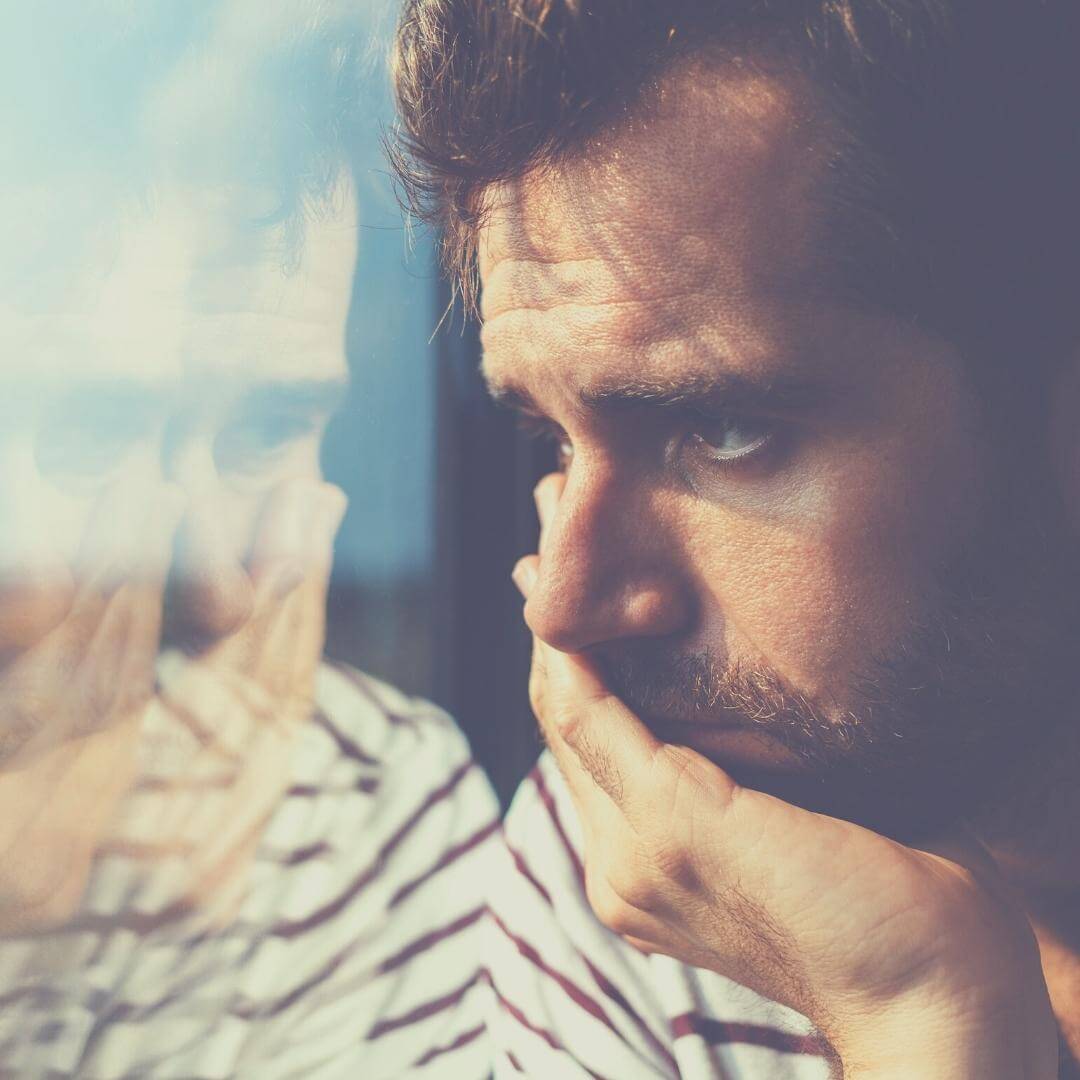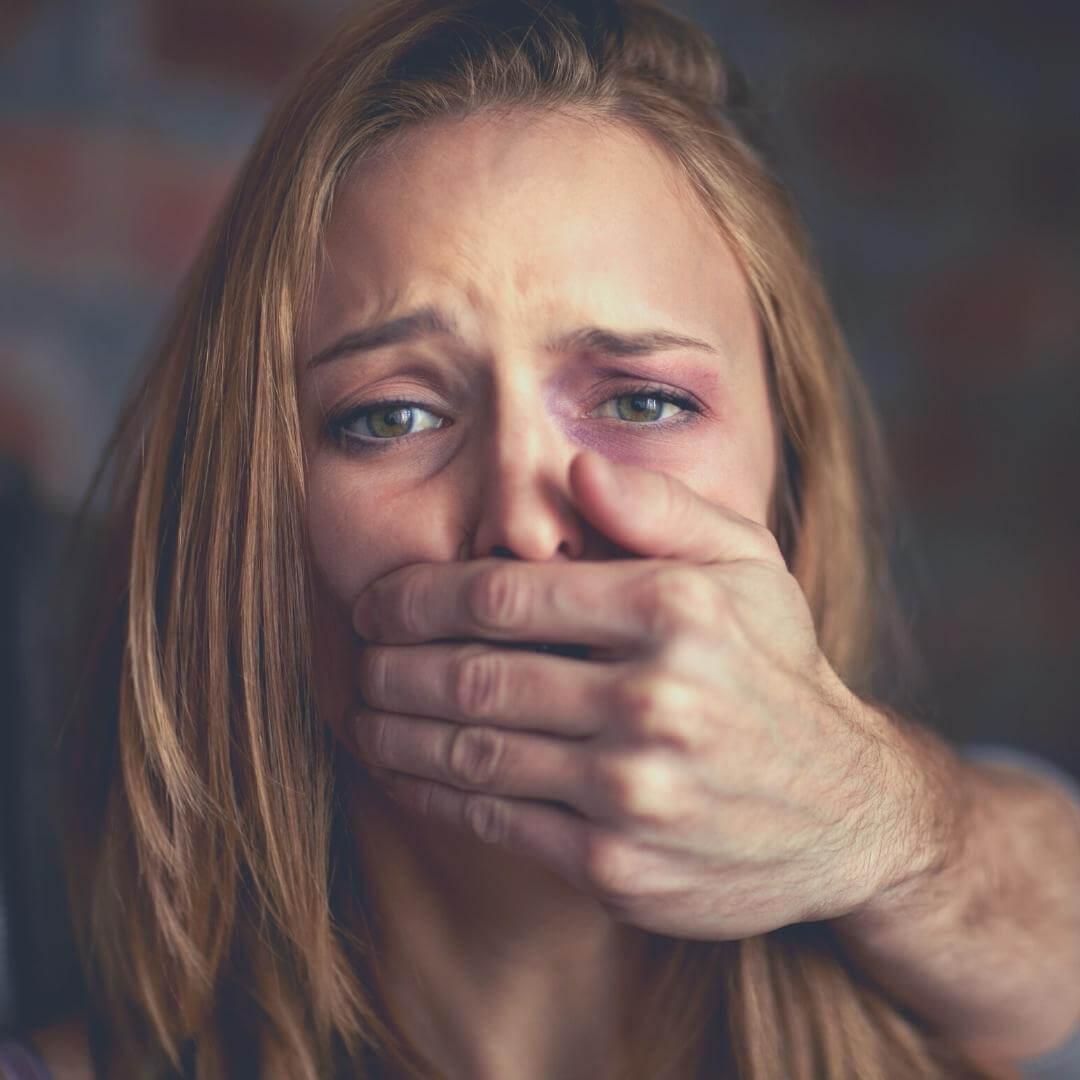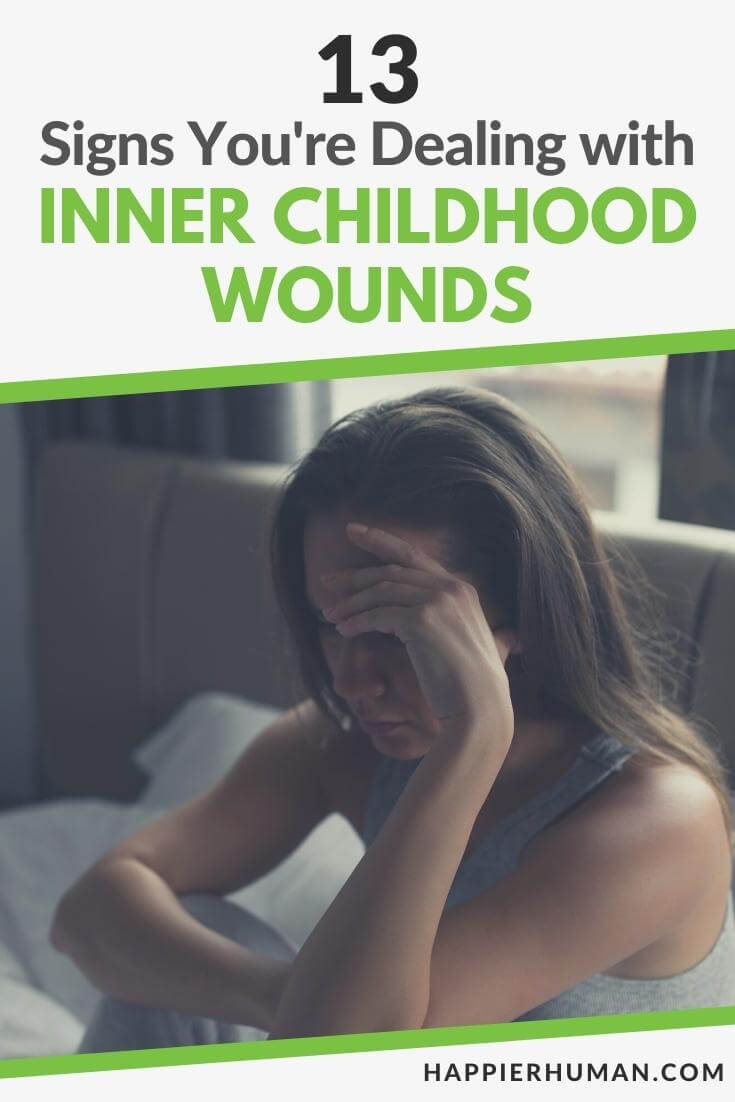Have you ever walked into a room and had an almost irrational fear or anger response to the people in the room or the situation there? Often, we’ll have this feeling when we’re face to face with our boss, or some other peer, feeling that we’re not happy and not okay (but we won’t know why). Yet, feeling anxious and like you want to throw a tantrum, you struggle on.
The reason for that irrational response is that you are likely dealing with different inner childhood wounds. While these childhood scars are instantly visible to the trained eye, you may not be aware that you are carrying these deep and lasting injuries from your past… injuries that are damaging your daily experiences as an adult.
Your childhood wasn’t the safe and nurturing environment you wanted or needed, and now you have scars that won’t heal. If you think this sounds like absolute nonsense, consider that your formative years are your childhood years.
Were you happy as a child? Did you feel completely loved and secure? Have you blocked out the memories because of trauma and pain?
In this article, we will examine the signs to help you identify wounds to your inner child. We will help you come to terms and understand how these are damaging your self-worth and limiting your potential and happiness as an adult.
Who Is Our Inner Child?
The concept of an inner child is something that is often misunderstood. Your inner child is the innocent and completely hopeful side of yourself, which is oppressed and suppressed by our adult self. Because we are crushed by life and society, we stop believing in our abilities and inner strength.
You may have become wounded by a traumatic event as a child, or you may have suffered abuse from people who were supposed to protect and nurture you. Now, as an adult, you suddenly struggle to trust, feel upset at small things, and act aggressively because of deep-seated fear.
The child who hid in a closet during your childhood never came out into the light, and now you are not entirely whole as an adult.
While the society we live in (and our immediate family members and pivotal people who raised us) started the oppression by telling us we “couldn’t,” we continue the cycle of oppression by believing we “can’t.”
Instead of helping our inner child out of the closet of painful memories, we keep closing the door by not acknowledging our pain and oppressed self. This is not a healthy way to live.

Feeling incomplete, you become confused and angry. Adult tantrums are the result of not feeling the hopeful contribution of your inner child in your day to day interactions.
When you’ve lost your sense of wonder or given up on yourself, your inner self suffers. Your inner child begins to throw tantrums, act out, and leave you feeling unhappy (for no apparent reason). Is your inner child banging against the closet doors of your painful past? Perhaps it’s time to let them out.
What Are Inner Child Wounds?
The wounds your inner child suffers are essentially scars and trauma sites that never healed on your inner hopeful self. These scars are the result of painful experiences and treatment by others. Instead of processing these and healing, you simply keep mentally picking at the scabs and making it bleed.
Trauma and Neglect as a Child
Trauma such as being left alone when you need adult support and care, not having your parents respond to your cries, and being told to “get over it” when you were sad or upset can all contribute to your childhood scars.
We learn so much about the world and our own abilities when we are children, that if we suffer neglect and endangerment during this time, we will continue to be affected by it as adults. A few instances that could cause trauma and feelings of neglect during your childhood include:
The Traumatized and Neglected Adult
Fast forward a few years into your adulthood. After suffering the injuries to your inner child, you have lost the positive outlook on life that should come with a healthy childhood. Instead of seeing possibilities, you are negative and always look for what could go wrong.
You are hyper-vigilant and always on the lookout for trouble or danger. The terrors you suffered as a child have become internalized, and you have a type of post-traumatic stress disorder (PTSD), which can manifest when you are under pressure in your adult life.
The child-you couldn’t, so your adult-you can’t—or so you tell yourself.
The Role of a Healthy Inner Child
Before you look at what the signs of a wounded inner child looks like, perhaps it’s helpful to know what a healthy inner child should be. When you can practice self-acceptance and don’t feel like you have to conform or fit in to make others happy, you have a well-balanced inner child.
A healthy inner child accepts their authentic self, sees life for its opportunities, and has exuberance for each day. When you feel safe in your own childhood, you can feel safe as an adult too. You will feel like your boundaries are respected, that saying “no” has power and that you are allowed to live to the fullest without apology.
Now you know what your inner child should do and look like, you can begin to look for signs of inner child trauma. By seeing the signs, you can begin to deal with the injuries too.
13 Signs you’re dealing with Inner Childhood Wounds
There are a few signs that can help you identify childhood trauma and wounds in your adult psyche.
1. You Feel Guilty All the Time
When you continuously feel like you need to apologize and that you’ve done something wrong, it’s a sign that you were made to feel like you were bad as a child. Your inner child has begun to believe that “I am wrong, I am to blame for everything, and I am the cause of other people’s suffering.”
Chances are that a significant person in your life blamed you for everything when you were young. They made you feel guilty about the cost of raising you, the effort to take you to school, and the time it took to talk to you. Somehow, they convinced your child-self that you were all “wrong.”
2. New Things Scare You into Anxiety
While it’s perfectly normal to be a little scared of new experiences, when you feel utterly terrified and will do anything to avoid new things, it’s a sign that your inner child was made to feel unsafe. Perhaps you went on an amusement park ride but your parents didn’t comfort you or made fun of you for being afraid when you cried.
Today, as an adult, you can’t help feeling utterly anxious when you have to do anything new or novel. Taking a different route to work sets your teeth on edge, and you may become snappy and argumentative when forced into new activities.
3. You Have to Make Others Happy
Are you a people-pleaser? Somewhere in your childhood, you were made to feel that your only worth lies in making others happy. If you don’t make others happy, it makes you unhappy. When your sense of self-worth becomes tied to the happiness of others, it’s a sign your inner child has been scarred by an event or person who conditioned you into being a people-pleaser.

There’s nothing wrong with helping others and being a good and pleasing person, but when you crave it like a drug, the warning flag should be raised. The problem with this scar is that we aren’t supposed to rely on others to make us feel good. As an adult, we should make ourselves feel good and valuable.
4. Overachiever Syndrome
You drive yourself with completely mindless dedication, giving up everything to reach the very top. Sound familiar? Yeah, if you’ve got overachiever syndrome, chances are that your inner child was conditioned to believe they were only worth it when they were at the top of everything.
Perhaps your dad only smiled at you when you were captain of the football team or head of the cheerleading squad. As with feeling guilty or like you have to make others happy, feeling like you need to be the best of the best isn’t healthy.
5. Feeling Like You’re a Terrible Sinner
An extension of feeling really guilty is the self-perception that you are not only to blame but also a sinner beyond redemption. You were made to feel not only guilty, but also ashamed when you were a child. One simple incident made you feel you were a mistake and a product of sin.
This feeling of being a sinner also manifests as an adult feeling like you are going to go to hell, and feeling an intense fear of hell.
6. You Ruin Your Own Plans
If you’ve ever made great plans, only to realize you subconsciously didn’t want those plans to come true. When you are always expecting failure and good things don’t come true, you are nursing an inner child scar.
You may feel relieved when plans fail, or you can even intentionally make plans fail. Either way, you don’t feel like you can manage a new plan or initiative. So you fall back into the familiarity of failure.
7. Coping through Addictions and Negative Habits
You may feel that you can’t cope in the adult world because as a child you were never reassured of your own abilities and strengths. To cope, you turn to addictions like smoking, drinking, sex, and drugs to help you feel like you can finally relax.
You may develop negative habits like avoiding people and always running yourself down as a way to look for sympathy.
8. You Seek Relationships with Abusive Partners
Perhaps you don’t yet realize it, but those partners who abused you, misused your kindness and love, and are all a sign that you are drawn to bad partners.
You may even have anger issues and dole out abuse too, but when you constantly look for and attract partners who are abusive and negative towards you, it’s a sign of your inner child reliving childhood traumas. Maybe your parents were abusive towards each other or even to you?
9. You Feel Like an Outsider
If you have deep-seated insecurities from your inner child wounds, you will also feel “left out” of any situation or relationship. Even your relationship with your family will become compromised, and you may feel like an outsider in what should be a fundamental relationship for you as an adult.
You’d rather chew through your wrists than pick up the phone and call your parents or siblings. When guilt (because you probably have a lot of that, right?) gets the better of you, you’ll send a text message or email instead of calling.
10. You’re Either a Loner or Clingy
Those with childhood scars and a poor inner child concept will either prefer to keep their own company or cling to any company (even the wrong kind) for dear life.
You don’t feel satisfied in your relationships, so you choose to either stay on your own or you crash in and out of relationships, but you’re never able to stick it alone.
11. You Chase Perfectionism
When you’re scarred by your childhood, you may chase after perfection. Everything you do needs to be perfect or you’re a mess.

From how you dress, cleanliness, and work ethic, you simply have to be militaristically perfect. And even when it is perfect, you’re unable to feel satisfied.
12. You Can’t Stand Up for Yourself
If you’d rather work 16 hour shifts to avoid conflict, you’ve got inner child issues. Conflict is part of life, but when you have been so scarred by the conflict of your childhood, your inner child cringes at as little as a raised tone of voice.
So you cower instead, hiding away from conflict at all costs.
13. Slow to Start, Reluctant to End
You procrastinate endlessly, grinding wheels, and not getting started on a task. Then, to make it worse, you simply can’t end it either. Washing dishes is a never-ending story of soap, water, and insecurities.
How to Heal Your Inner Childhood Wounds
Your inner child, your inner YOU, is so used to not being heard, that they probably don’t even speak up anymore. Scared, lonely, and all abandoned in some corner of your psyche, your inner child needs to be heard, seen, and healed. But how?
To heal your inner childhood, you need to engage in a process of reflection, recollection, and re-affirmation. You need to honor your pain, open the sores of the past, and finally lance the festering injury that’s been poisoning you until now.
When you’ve gone through the process of draining the poison away, you can begin to heal, regrow torn mental flesh, and rebuild the broken bones of your soul.
Final Thoughts on Inner Childhood Wounds
Your inner child is a vital part of yourself… your creativity, your mental stamina, and your psychological fortitude. Without that part of yourself, you are less than half of who you can be. Healing requires that you admit to the signs of your inner childhood wounds.
See the signs, identify the start of those injuries, and finally take the steps to heal from within. Happiness is possible and within reach with the right support system.
To find out more about healing techniques like positive affirmations, read our article on Positive Affirmations. You may also want to seek psychological counseling, if the wounds are deeper than you realize.


